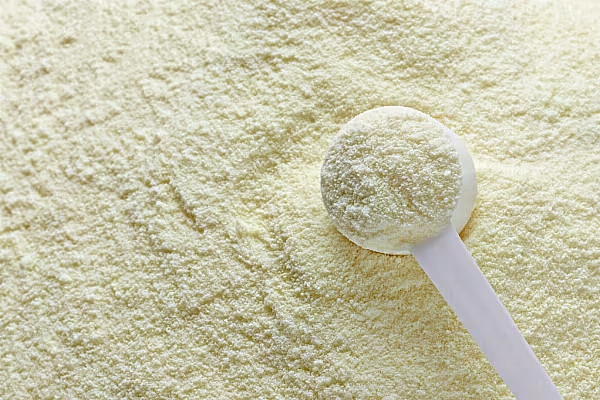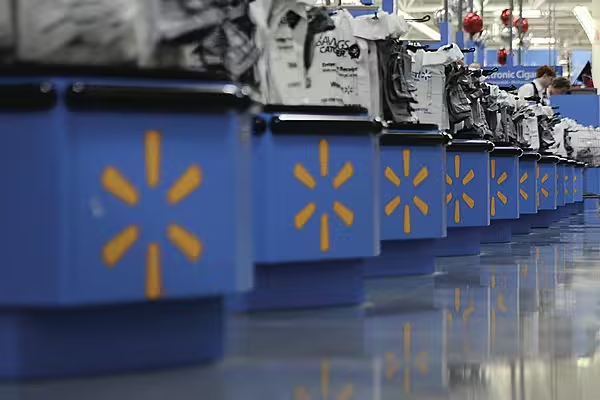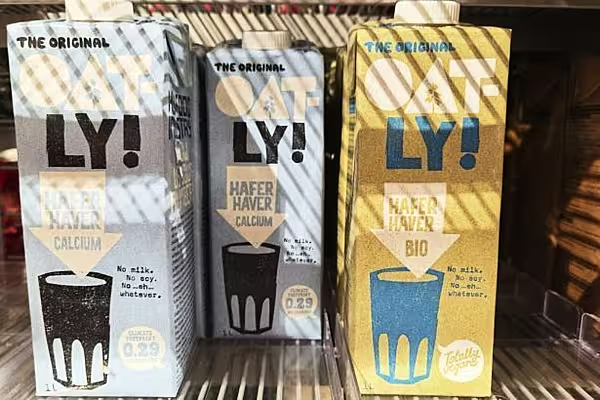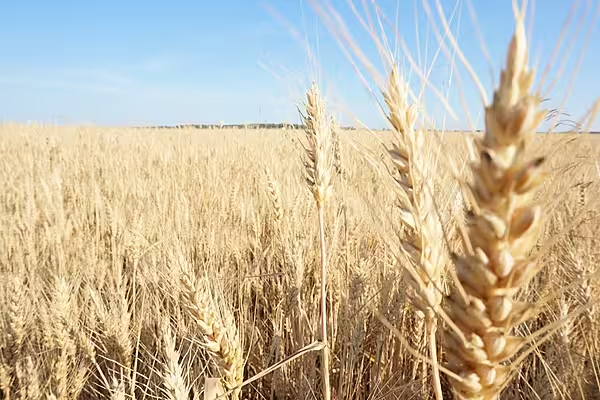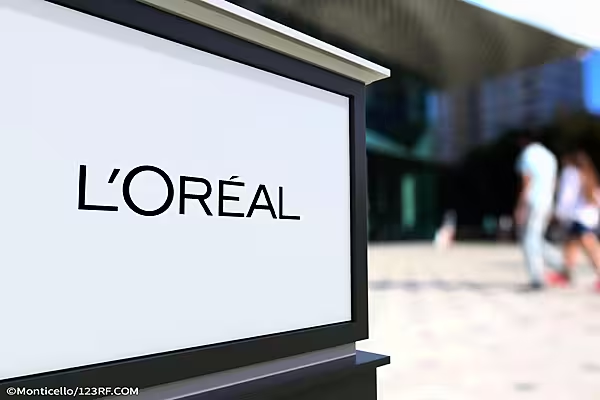Nestlé plans to launch a new line of baby formula in China this year under an existing brand, targeted at smaller cities, as the world's largest packaged food company tries to lengthen its lead in the world's biggest baby milk market.
The new line, discussed exclusively with Reuters, will focus on smaller provincial cities, often in China's western provinces, where greater shipping distances and lower incomes can make some imported brand goods unaffordable, though wealth there is growing.
Producers of many consumer staples such as soft drinks and soap had to seek growth in the less-profitable provincial cities years ago, as China's richer eastern markets matured.
But the baby milk units of Nestlé, France's Danone and Reckitt Benckiser enjoyed years of prosperity mainly just targeting parents in big cities like Shanghai and Beijing, banking on their appetite for ever-pricier premium formulas and foreign brands following a domestic 2008 tainted milk scandal.
Slowing growth has now made geographic expansion crucial, and new distribution models have made it easier.
Intense Competition
The big catch, however, is the intense competition and logistical hurdles they will encounter in China's $25 billion (€22.3 billion) baby formula market as they run up against local players who dominate in the smaller cities - challenges that mirror those faced by Western brands across China's consumer goods sector.
Liu Yufeng, a 23-year-old small business owner from Baoding city, in central Hebei province, chooses a brand made by Chinese company Bright Dairy to feed her 2-year-old daughter. She told Reuters she leans towards local brands because she feels they are more affordable and suitable for her baby's make-up.
She is not alone. Some 55% of respondents in a survey by the User Research Institute of BabyTree, China's leading parenting website operator, said domestic brands better understood Chinese consumers.
"This reflects a broader trend that indicates local brands are gaining traction among consumers in China," said Wang Lei, head of the institute.
Chinese retail sales of baby formula grew 9% last year, according to Euromonitor International. That is down from nearly 17% growth in 2014, the year after China relaxed its one-child policy.
Yet the scale of the country, with more than 15 million births last year, and consumers' preoccupation with quality, means it is still by far the world's most important market for baby formula.
Foreign Vs Local
When Zhang Yanyan, a 36-year-old civil servant from Zibo city in the central province of Shandong, needs to formula feed her 8-month-old baby, she uses a version of German brand Bebivita.
"I buy foreign-made infant formula, but not ones that are original imports. Given that the make-up of Chinese children is different to foreign children, I've chosen to buy foreign-made infant formula aimed at Chinese children," she said.
That balance of international brand trust and local tailoring is what Nestlé is aiming for with its new line.
It will come under the umbrella of one of its three existing Chinese brands - Illuma, S-26 and NAN - but will be marketed differently, Thierry Philardeau, head of its infant nutrition business, said in an interview.
He did not give details but noted that adaptations in distribution and marketing would make the 'sub-brand' more appropriate for its target audience.
Market Division
Marketers and other businesses unofficially classify China's cities into tiers based on differences in business opportunity, infrastructure, population size, income level and consumer behaviour and sophistication.
The major metropolises of Beijing, Shanghai, Guangzhou and Shenzhen are traditionally seen as Tier 1 cities, with the following tiers made up of smaller, fast-growing cities that still boast of millions of inhabitants.
Such lower-tier cities, accounted for 47% of the baby formula market 15 years ago, Nestlé's Philardeau said, but 73% today.
"People have more money to spend there and are catching up with the rest of China," he said. But because of different consumer demographics, he said the tone of the new line's marketing would be simpler, though the product's quality and sophistication would be comparable.
"They are ready to pay a high price, but they need a more consumer-friendly communication, slightly less scientific, simpler," he said.
Affordable Products
Sub-brands are a common tactic used by marketers to take advantage of the cachet of a premium brand while selling something more affordable. In China, they are often used in lower-tier cities or rural areas, along with smaller package sizes, to make products that are more affordable.
Nestlé's new range, which will include products for babies of various ages, will be made at factories in China, though the company did not say where the milk would come from.
Because of consumers' unique concerns around safety and quality, baby formula is much more expensive in China than in Europe. One 800 g (28 ozs) can of baby formula in China tends to cost north of $30, while a similar can costs $13 in Britain.
Adam Xu, a partner at OC&C Strategy Consultants in Shanghai, said though willingness to pay high prices for baby formula was universal in China, the growth of quality national players - encouraged by the government - was making life harder for premium Western brands.
Local Champions
Chinese formula makers, which include Feihe International, China Mengniu Dairy and Inner Mongolia Yili Industrial Group, have grown stronger, amid a host of marketplace shifts including government registration requirements implemented last year that dramatically reduced the number of brands on the market.
At the same time, investments by domestic players in premium brands and special formulations are helping to overcome safety concerns, said analysts at Citi Research. They predict Chinese brands could reach 53% market share by 2022, up from 40% in 2015.
That is because in an overall market expected to grow about 7%, they see domestic brands growing 11% and foreign brands growing only 4%.
Yili Group, China's largest dairy company and maker of the fifth-largest baby formula brand, told Reuters it was working on various fronts to improve its product offering through more scientific research, as well as its route to market using big data, artificial intelligence and real-time analysis.
Letting Others Drive
Multinational consumer goods companies have historically employed their own sales forces in China to service retailers, a model that is inefficient for smaller cities, said Derek Deng, a partner at management consultants Bain & Co in Shanghai.
"It works fine in Tier 1, 2 cities because the density of sales is high," Deng said. "But when you go into lower-tier cities, you are facing a lot of difficulties."
That is why local players tend to use third-party distributors, he said, noting that foreign firms were following suit, forming partnerships with big distributors and online players such as Alibaba and JD.com Inc.
Analysts see Nestlé as having the best distribution potential of its peers, since its massive scale means it has a range of goods to sell and with which to fill trucks headed for distant locales.
The Swiss firm generated CHF 7 billion ($6.87 billion) of sales in greater China last year, nearly 8% of its total, selling everything from Nescafe coffee to Yinlu peanut milk.
Nonetheless, it needs to adapt. Philardeau said Nestlé was also boosting its presence on online platforms such as Alibaba.
Partnerships with online players have allowed British rival Reckitt Benckiser to enter 250 new Chinese cities in less than a year, compared with the more than 18 months it might have taken to enter 100 with its traditional feet-on-the-ground model.
A deal with JD.com sees the e-commerce giant deliver Reckitt's goods to specialist mom-and-baby stores, where parents can pick them up, within 24 hours.
News by Reuters, edited by ESM. Click subscribe to sign up to ESM: European Supermarket Magazine.
